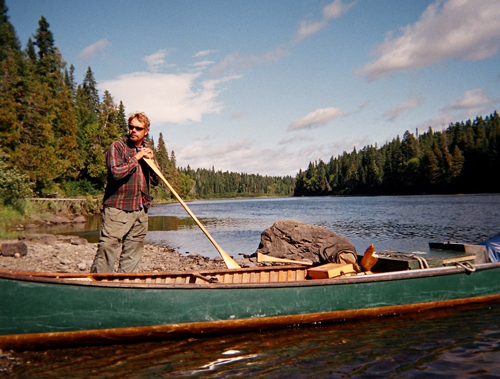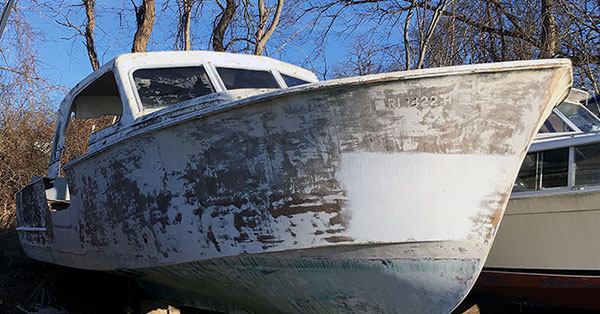I faced this problem last summer, when a vehicle burst into flames and two Royalex canoes stored nearby were melted. This adventure resulted in a yet-to-be-published article for my canoe club newsletter.

There are no good answers at this time. Because Royalex is a sandwich of different types of plastic, nobody can recycle it. I placed an ad in the "Free Stuff" section of Craigslist. Eventually someone came along who wanted to make canoe-shaped flower beds for his wife. So the canoes were reused, but the final disposal problem was passed on to someone else.
Royalex and its successors such as T-Formex are the most problematic because of the mixture of materials. It seems to me that the stuff could be used as fuel, or ground up to be added to paving materials. I researched and did not find that anyone is actually doing this.
Spurred on by the problem of used wind turbine blades, pilot programs are underway to use ground fiberglass as fuel, or as filler for masonry products. There are also efforts to separate the glass fibers from the resin matrix for reuse in other plastic products. Possibly Kevlar canoes could be processed in the same way.
Where do fiberglass vessels go when they’re past their useful lives? Until recently, the landfill. An innovative recycling business could change all that.

www.boatus.com
Fiberglass is used more today than ever, but when the products have reached the end of their useful life, who is recycling fiberglass?

designedconscious.com
Birch bark, of course, will eventually return to dust. Wood and canvas canoes are mostly biodegradable, but they have metal fasteners and possibly toxic chemicals in their paint.
Among modern materials, aluminum has well-established recycling processes. High density polyethylene can be reused to make other plastic products such as lawn furniture. Both of these materials have shortcomings as canoe materials.
Presumably we paddlers love nature, but here in the last days of the Petroleum Age we have a dilemma.
We cruise around in boats made from chemically rearranged oil, and consume fossil fuel traveling to distant rivers. Are we unintentionally killing the things we love? Perhaps violent storms caused by petroleum-generated climate change will make paddling more exciting? I feel guilty, but not enough to stop paddling.







